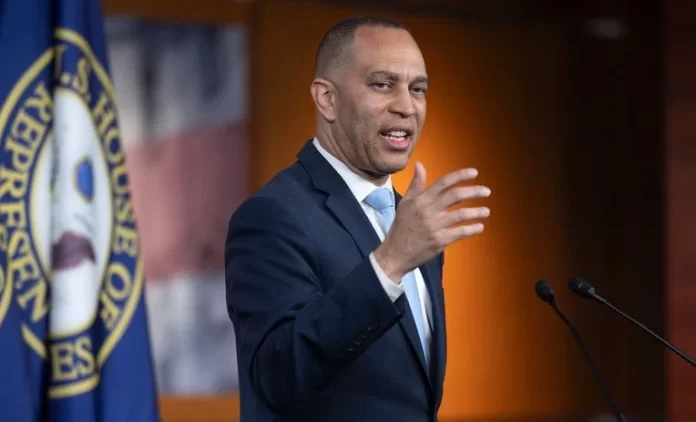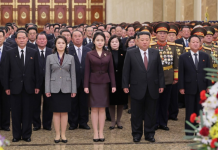WASHINGTON — House Minority Leader Hakeem Jeffries is under growing pressure from both political opponents and Democratic voters, as he continues to navigate a contentious relationship with the Republican-led government while facing doubts about his leadership from within his own party.
In the past two months, Jeffries has been at the center of a flurry of headlines, ranging from defending his leadership decisions to rallying Democrats against Republican budget proposals. He most recently denied reports that he discouraged Democratic lawmakers from traveling to El Salvador, a claim he called “categorically false” in interviews across multiple Sinclair-affiliated outlets on April 30.
Jeffries has publicly questioned President Donald Trump’s cognitive fitness and accused him of “crashing the economy in real-time,” while also lambasting the administration’s proposed Medicaid cuts and education book bans. He joined Sen. Cory Booker in a Capitol sit-in on April 27, opposing the GOP budget plan and energizing the party’s progressive base.
But Jeffries is also contending with internal challenges. He’s repeatedly dodged questions about his relationship with Senate Minority Leader Chuck Schumer, fueling speculation of tension between House and Senate Democratic strategies. On March 14, reporters pressed him over Schumer’s role in passing a Republican stopgap bill, prompting evasive responses and headlines questioning Democratic unity.
The backlash isn’t only from Republicans. Prominent liberal commentators, including MSNBC’s Rachel Maddow, have pressed Jeffries to adopt a more confrontational tone, warning of a perceived lack of urgency in countering Trump’s agenda. Others, like columnist Chuck Todd, noted the party’s leadership appears “paralyzed” by fear of a left-wing revolt.
Despite mounting frustrations, Jeffries has signaled resolve. On March 25, he issued a formal demand for Defense Secretary Pete Hegseth’s firing following a controversial military group chat scandal, highlighting ongoing Democratic concerns over national security and executive overreach.
The tension reflects a broader reckoning for Democratic leadership in the minority. As one March 18 New Republic headline put it, “Voter Literally Begs Hakeem Jeffries for Dems to Stand up to Trump.”
With the 2026 midterms looming and President Trump’s policies reshaping Washington, Jeffries faces the difficult task of uniting a fractured party, countering Republican momentum, and proving he can lead Democrats out of a political wilderness.





